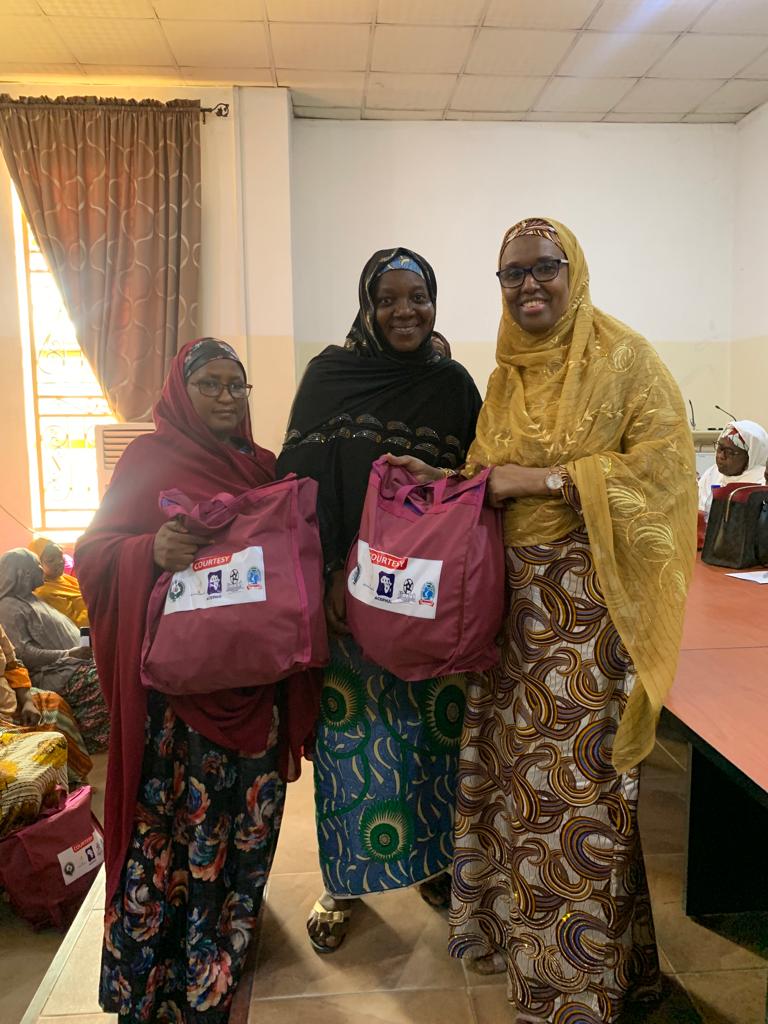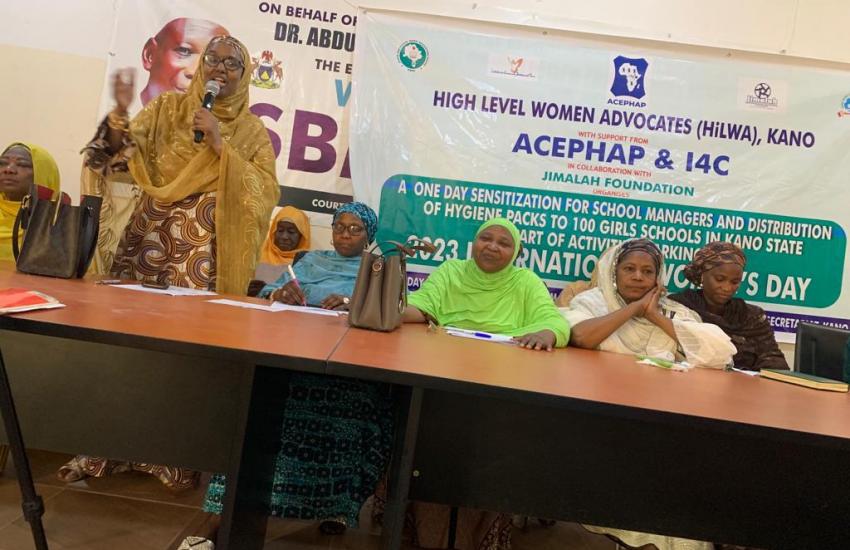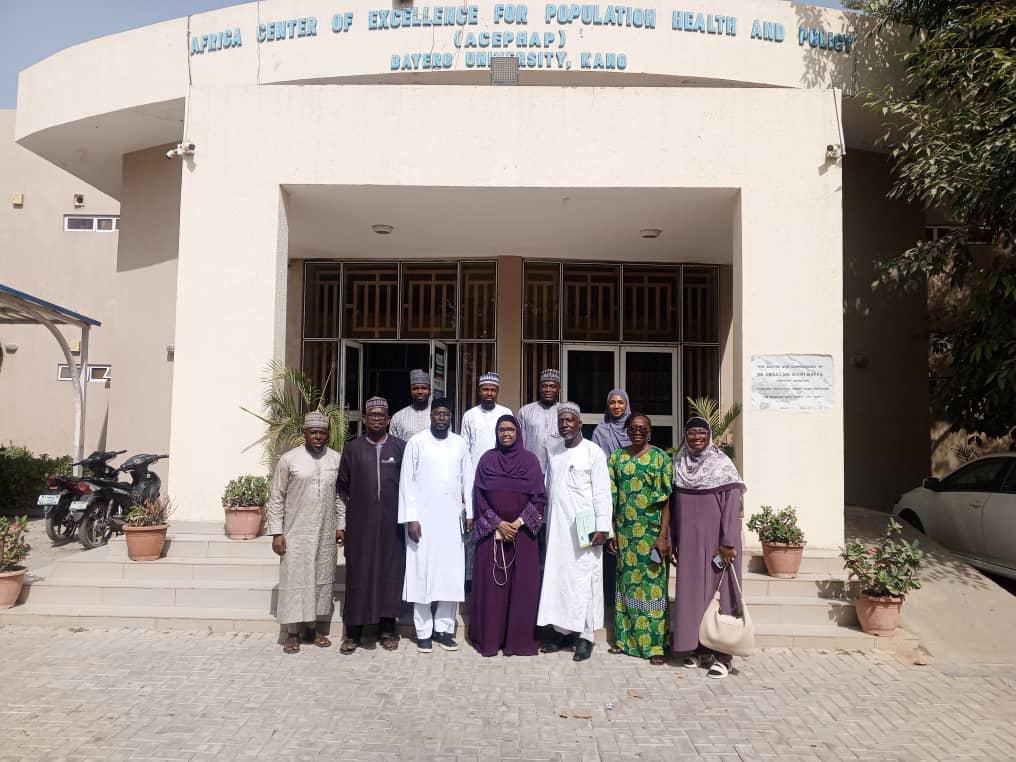ACEPHAP, HiLWA Collaborate With Stakeholders to Commemorate this Year's International Women's Day
Africa Centre of Excellence for Population Health and Policy (ACEPHAP), Initiative for Community Development Focus (14C) and High Level Women Advocates (HiLWA) have partnered with other stakeholders to commemorate this year's International Women's Day.
This year's celebration was marked by creating awareness to communities, family and education stakeholders and specifically school leaders and guidance and counseling teachers on menstrual hygiene and the need to establish pad banks in schools across Kano State.
Speaking at the well attended occasion which took place on Tuesday, 16th May, 2023 at SBMC Hall, State Basic Education Board (SUBEB), Audu Bako Secretariat, Kano, the ACEPHAP Director, Professor Hadiza Galadanci, said ACEPHAP supported HiLWA and other partners to celebrate International Women's Day 2023 in order to create awareness on the dangers inherent in lack of menstrual hygiene, which she said was the major cause of reproductive health challenge among adolescent girls. She added that this menstrual poverty in schools in Kano State was seriously affecting participation in school activities and the learning outcomes of girls.
Professor Galadanci added that in order to address the challenge of girls' menstrual hygiene, 'we are supporting theestablishmentofPadBanksin100schools. Ibelieve that this endeavour will increase access, attendance, retention and participation in learning for adolescent girls in100focusjuniorsecondaryschoolsinKanoState.' She also added that it would ensure healthy menstrual hygiene, which could prevent the potential risks of reproductive health, such as gynecological infection and later infertility. 'We are pleased to collaborate with all partners to ensure that we retain our girls in schools and in turn ensure they leave a healthy reproductive health,' she remarked.
In her address, the President of High-Level Women Advocates (HiLWA), Professor Aisha Ismail, of the Department of Political Science, Bayero University, Kano, shed more light on why it was necessary to establish School Pad Banks in a paper titled: 'Why School Pad Banks'. She said reducing the number of out of school children had been a strategic agenda of the Nigerian Government and her partners, including UNICEF. According to her, the focus on girls' education was based on the understanding of the enormous challenges girls faced, as well as the opportunities education created for them, their families, communities and the nation.
Professor Ismail explained that available data in Nigeria showed that girl education, especially retention, was affected by challenges related to the management of menstruation, which occurred at the onset of puberty in girls and the prevalence of school related Gender Based Violence. She said that according to the estimates of the United Nations Children's Fund (UNICEF), about one in ten school-age African girls didn't attend school during menstruation or dropped out at puberty due to lack of cleanliness, the absence of sanitary pads and separate toilet facilities for female students at school. She said several studies documented that menstruation related problems had affected more than a third of students' class concentration, participation, socializing with friends, test- taking skills and homework task performance.
The HiLWA President explained that the objective of the school Pad Banks was to increase access, attendance and participation in learning for adolescent girls in the 100 focus junior secondary schools. The pad bank is to be distributed to the focused 100 schools free. She said the dignity packs would be distributed to 100 schools across Kano State, adding that each content pack contained 10 Sanitary Pads, one dozen of Panties, 20 Soaps, 10 Sponges and 10 Sanitizers.
She said a special space would be created in the school where the Bank items would be stored and marked 'School Pad Banks.' The Bank items would consist of: Sanitary Pads, First Aid Box comprising analgesics, etc, Washing Soap, Hand wash, Disposable Pants, Pant Liners, etc. She added that a stock inventory would be opened and maintained with (quantification).
She called on the school leaders to effectively maintain the pad banks while the SBMC and community would all contribute and support its sustainability to ensure uninterrupted attendance, retention and the completion and transition of girls to the next level of education.
Some of the partners that collaborated with HiLWA to organize the event sent in goodwill messages. Among them were the UNICEF representative, AGILE Project and Hajiya Amina Umar from SUBEB among many others.
At the end of the event, the Principals of the 100 benefiting Junior Girls Secondary Schools were presented with the dignitary packs.





